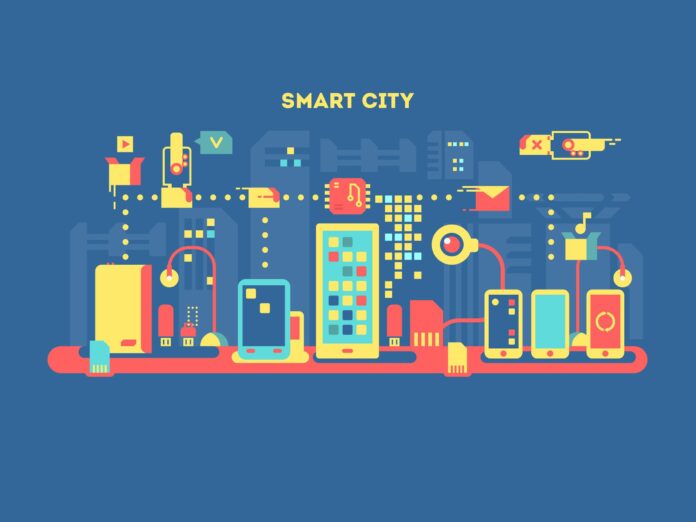The term smart cities is popping up more frequently. So what does smart city actually mean? It’s a relatively new term, but it will be huge going forward. I am invited to attend more smart city conferences here in the U.S. and worldwide to learn more. Smart city technology is still in its infancy, but growing rapidly, and I believe it will become a very important new industry sector going forward.
Smart Cities Week was a recent conference in Washington, D.C. One of the best ways to understand how this new field is growing is to talk with the players and listen to their stories. Everyone is interested in this new space – investors, partners, workers and users. And like with any new space, it will grow and change many times over the next several years. New leaders will emerge on a regular basis as the space unfolds.
As always, it is a challenge for all of the players and investors. These early days of volatility will have plenty of ups and downs. The right call today may be different from the right call tomorrow. Any way you slice it however, this is a growing, new sector.
AT&T Smart Cities
The general manager of AT&T Smart Cities, Mike Zeto, was at the conference discussing the 1-year-old group created as its entry into this developing market. Zeto said one of the ways AT&T innovates quicker and gets to market faster in emerging spaces is by creating startups inside the very large company.
He said At&T is taking lessons already learned from other new spaces like Digital Life and Connected Car. I think the “internet of things” also will play a large role. I remember this same philosophy with their prepaid AIO Wireless offering which is now called Cricket.
Zeto said AT&T has four pillars: One, connectivity of different types that is both scalable and secure. Two, applications and platforms. Three, security, cloud and things like developer environments. Four, partnerships with alliance members. AT&T will soon go into 10 cities and help them develop a strategy within the smart city framework.
Check out this interview with Mike Zeto, filmed in Washington during Smart Cities Week.
So as you can see, this is a huge undertaking involving multiple technologies and companies. Innovation will increase and change the world time and time again in coming years. The smart city revolution will be huge, but with any new sectors there will be plenty of ups and downs. It’s just part of the process.
Subscribe now to get the daily newsletter from RCR Wireless News
Conferences like Smart City Infocus 2016 and Smart Cities Week
Several weeks ago there was a Smart City Infocus 2016 conference in Yinchuan, China. I was invited to attend this conference and my research opened my eyes to the importance of government involvement to making this dream come true.
Just like self-driving cars, where we have to change the rules of the road with laws and technology and innovation, the same applies to smart cities. Except it’s a thousand times more complex. So we have to try to get everyone on the same page – from governments to regulators to innovators to industry leaders in communications and technology.
The way I see it, bringing everyone together on the same page is one of the biggest challenges. Not that it can’t be done. The same challenges have happened with many other industries like wireless, internet and assorted technological breakthroughs. It’s just a very large process.
Smart cities not an overnight transformation
What it does mean is that it is not an overnight transformation. This change will happen, bit-by-bit over the next several decades. Think of wireless as an example. Wireless started in the early 1980s with a phone installed in the car, an analog network, little connectivity and high costs.
Now we have a state-of-the-art digital network, fast speeds on the wireless data network, lower costs and tiny smartphones we carry around in our pockets, and it keeps getting better, year after year. Not only that, but wireless is spreading to other industries like automotive with connected cars, health care, retail and so much more.
Smart cities opportunities and challenges
As we grow and mature into this new smart city industry, new ideas will continue to pop onto our radar. Problems, risks and opportunities that we never thought of before. Just like the early days of any industry, there will be early leaders, and that leadership will continue to change as the industry matures and grows.
This is another, very exciting new industry that is forming. I will be learning more as I attend more industry conferences and have meetings with key players. I will write and talk about it from many different angles. This is the fun and exciting early days of this new industry, so there will be plenty of winners and losers. It will take plenty of money and fresh new ideas and willing partnerships, but the smart city revolution is now underway.

